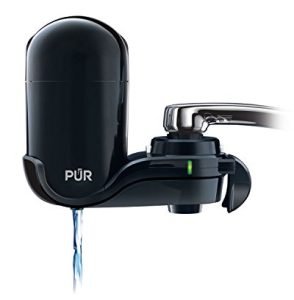- Home
- Health
- Water Softener Guide
- Water Treatment
Private Sewers & Septic Systems
- About Private Sewers Sysytem And Septic Systems
- Lateral Root Notification Program
- Fats, Oil & Grease
- Spills & Black Water Valves
- Help Protect The Enviroment
- Septic Systems
- About
Distilled vs. Tap: A Deep Dive into the Purity of H2O
Water – it makes up around 60% of our body, playing a fundamental role from aiding digestion to quenching thirst. Given its importance, the debate rages on: distilled or tap water – which one takes the crown?
A Glimpse into Tap Water's Journey
 Before we delve into the debate, it’s vital to understand the origins. Tap water, whether you know it as running, city, or municipal water, is what flows out when you turn on your faucet. But this simple flow hides a rich history. The ‘inner pipes’, which began in ancient times, became accessible to the masses around the 19th century in what is now the developed world. By the 20th century, tap water became a household standard.
Before we delve into the debate, it’s vital to understand the origins. Tap water, whether you know it as running, city, or municipal water, is what flows out when you turn on your faucet. But this simple flow hides a rich history. The ‘inner pipes’, which began in ancient times, became accessible to the masses around the 19th century in what is now the developed world. By the 20th century, tap water became a household standard.
Distilled Water: Nature's Purity in a Bottle
Distillation is akin to nature’s method of purification. The process involves turning water into steam, leaving impurities behind, then condensing it back into its liquid form. The result? A water stripped of contaminants. In realms where utmost purity is paramount, like in certain machinery or electronics, distilled water reigns supreme.
Distilled vs. Tap: The Debate Intensifies
 No one disputes the necessity of hydration – experts recommend six to eight glasses daily. However, the focus shifts when we talk about the purity of that hydration. While tap water undergoes treatments to remove major contaminants, it isn’t immune to impurities. Common additions like fluoride, while beneficial in moderation, raise eyebrows in larger quantities.
No one disputes the necessity of hydration – experts recommend six to eight glasses daily. However, the focus shifts when we talk about the purity of that hydration. While tap water undergoes treatments to remove major contaminants, it isn’t immune to impurities. Common additions like fluoride, while beneficial in moderation, raise eyebrows in larger quantities.
The Shortcomings of Tap
Calcium-rich tap water might seem beneficial, but in large amounts, it may pose risks like kidney stones. Contrast this with distilled water, which lacks this excess calcium. Additionally, the allure of fluoride in tap water as a cavity preventer dims when considering potential overexposure risks, leading to conditions like enamel fluorosis. Modern water treatment plants have advanced filtration systems, but they can’t escape the occasional addition of impurities. With distillation, water undergoes a more ‘natural’ purification process, guaranteeing a drink free from contaminants.
Taste: The Often-Overlooked Factor
One cannot overlook taste in the water debate. Tap water, given its varied treatments, varies in taste. Distilled water, on the other hand, promises consistency: a clean, crisp taste with no lingering aftertaste.
The Verdict: Distilled or Tap?
When it comes to purity, distilled water is the undisputed champion. Not only is it guaranteed to be 100% pure, but it also offers superior taste and smell. Beyond these superficial benefits, the distillation process ensures the elimination of potentially harmful substances, giving it an edge over traditional tap water filtration methods.
The choice seems clear. Distilled water offers a level of purity that’s hard to match, making it a frontrunner in the world of hydration. Whether you’re a scientist, a health enthusiast, or someone simply looking for a refreshing drink, distilled water delivers on all fronts.








